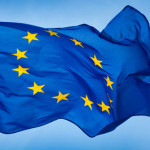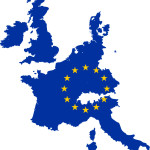“Trilogue” negotiation to determine palm biofuels ban
The EU Decision making process on the Renewable Energy Directive (RED) revision is important for palm oil producers as there is a possible ban on palm biofuels.
The RED first entered into force on June 25, 2009, and since then it has been the main regulatory tool used by Brussels to regulate biofuel use. The Directive sets targets for each Member State on renewable energy use and also sets the criteria by which biofuels are allowed to be counted under those renewable energy targets.
According to Oil World, the EU is the largest biodiesel producer in the world, with an output of 12.8 MT in 2017. It is estimated that 3.5 MT of palm oil is used as raw materials.
In early January 2018, the European Parliament amended the draft RED to include a ban on palm oil biofuel use in Europe after 2021. This measure was strongly opposed by Malaysia and Indonesia. Both countries account for almost 90% of global palm oil exports.
As part of the draft RED approved by Members of the European Parliament, renewable energy would account for at least 35% of the E.U.’s overall energy use by 2030. Biofuels made from other food and feed crops would be reduced to zero by 2030 under the Parliament’s RED plan.
Furthermore, as part of the EU Parliament’s proposal, palm oil will not count as ‘renewable energy’ under the RED rules, therefore, it will not quality for EU quotas, targets or subsidy. This would exclude palm oil from the EU biofuels market: if a biofuel is excluded from RED targets it really has no future in Europe, the practical effect is the same as a ban. Importantly, this ban would start in 2021, nine years earlier than any other oilseeds are affected. There could not be a clearer case of discrimination.
The European Parliament (EP) confirmed its position in a plenary session vote on 17th January, when MEPs voted to remove biodiesel made from palm oil from its list of biofuels that can count towards the EU’s renewables target from 2021. This would naturally provide an advantage and space for use of other crop-based biofuels, and would discriminate against palm oil.
Although this will ultimately benefit local oilseed producers, inefficient domestic producers who can’t compete with palm biofuels will be protected and will remain uncompetitive. Instead of addressing the un-competitiveness of the local oilseed producers, Europe is erecting trade barriers by excluding palm biofuels which is far more cost effective. This points towards a clear case of protectionism.
A total of 492 MEPs voted in favour of the ban, 88 were against and 107 abstained. Nevertheless, the number of MEPs voting for the ban were much less as compared to during the EP Resolution in 2017 which was passed with a majority of 640 votes.
There were several MEPs and major political groups who expressed their support for palm oil. For example, 57 MEPs from the center-right European Peoples Party (EPP), submitted an amendment to delete the palm oil ban. In addition, several EPP MEPs voted against the ban on Palm Oil. The UK Conservatives, the governing party in London, also voted and spoke against the palm oil ban.
The plenary vote was the end-point of the Parliament’s process on RED. Last year, two Committees in the European Parliament voted to ban Palm Oil biofuels under the RED Directive. Firstly, the European Parliament’s Environment Committee voted in October to ban Palm Oil biofuels, this was then endorsed in November by the Parliament’s Industry, Research & Energy Committee. The plenary vote in January 2018 confirmed this position.
The Malaysian Government has been strongly opposing the EU Parliament proposal, including through a Ministerial Mission to Europe in February 2018. The Government has stated that it will not accept any discrimination and palm oil will remain on top of Malaysia’s agenda during any EU-Malaysia FTA negotiations. As palm oil is one of Malaysia’s most important economic sectors, Malaysia has reiterated that any ban is unacceptable and will be considered as a protectionist trade barrier. Senior Malaysian Government figures, including the Prime Minister, have stated that Malaysia will retaliate, to protect its small farmers. Indonesia and Thailand have supported this position.
A number of EU countries have spoken out against the ban, following Malaysia’s engagement. These include Spain, Sweden, France, Italy and the Netherlands.
Palm oil is an important commodity and revenue generator for Malaysia. Last year, the exports of palm products contributed an estimated RM 78 billion in terms of foreign exchange earnings for Malaysia. The major export destinations were India, EU and China.
Malaysia is the second largest producer of palm oil. From a developing country perspective the oil palm sector has provided economic development and prosperity for many people. This sector is most important for the 650,000 smallholders in the country. Almost 39 per cent of oil palm plantations in Malaysia are cultivated by smallholders. Palm oil has proven to be the most successful model to eradicate poverty and provide smallholders with a better life.
The European Parliament’s position on RED is not the final word. The EU leaders are currently negotiating to finalize the RED Directive. These negotiations between the Council and the European Parliament, to agree to a compromise text for the final RED Directive are known as ‘Trilogue’. Whether to ban palm oil biofuels – or not – will be an important issue in the trilogue negotiations. This is where the final decision will be taken. Should a compromise be reached it will be endorsed by a vote in the European Parliament, and an agreement in the Council. The new RED then will move forward and become EU law.
On the other hand, should the Council and Parliament not arrive at a compromise, they will then go back to the drawing board for a “Second Reading”.
The next three to six months are extremely important for the palm oil producers, as the two EU institutions; the Parliament and the Council, also with input from the EU Commission, will be deciding on the future for palm oil biofuels in Europe. This will have an impact on the 650,000 Malaysian small farmers and 3.2 million people who are dependent on this sector. The EU should make the right decision not to penalize this group that is most dependent on the oil palm sector as it will impact their future revenue and income.
The EU also needs to consider its own self-interest: there is no benefit for Europe in starting a trade war with South-East Asia. Most importantly, a trade war benefits no nation. According to the Economist, if there is one proposition with which virtually all economists agree, it is that free trade is almost always better than protection.
Belvinder Sron
Deputy CEO
MPOC










Leave a Reply